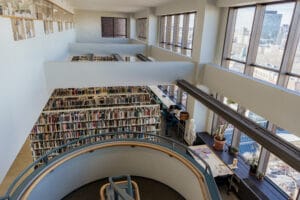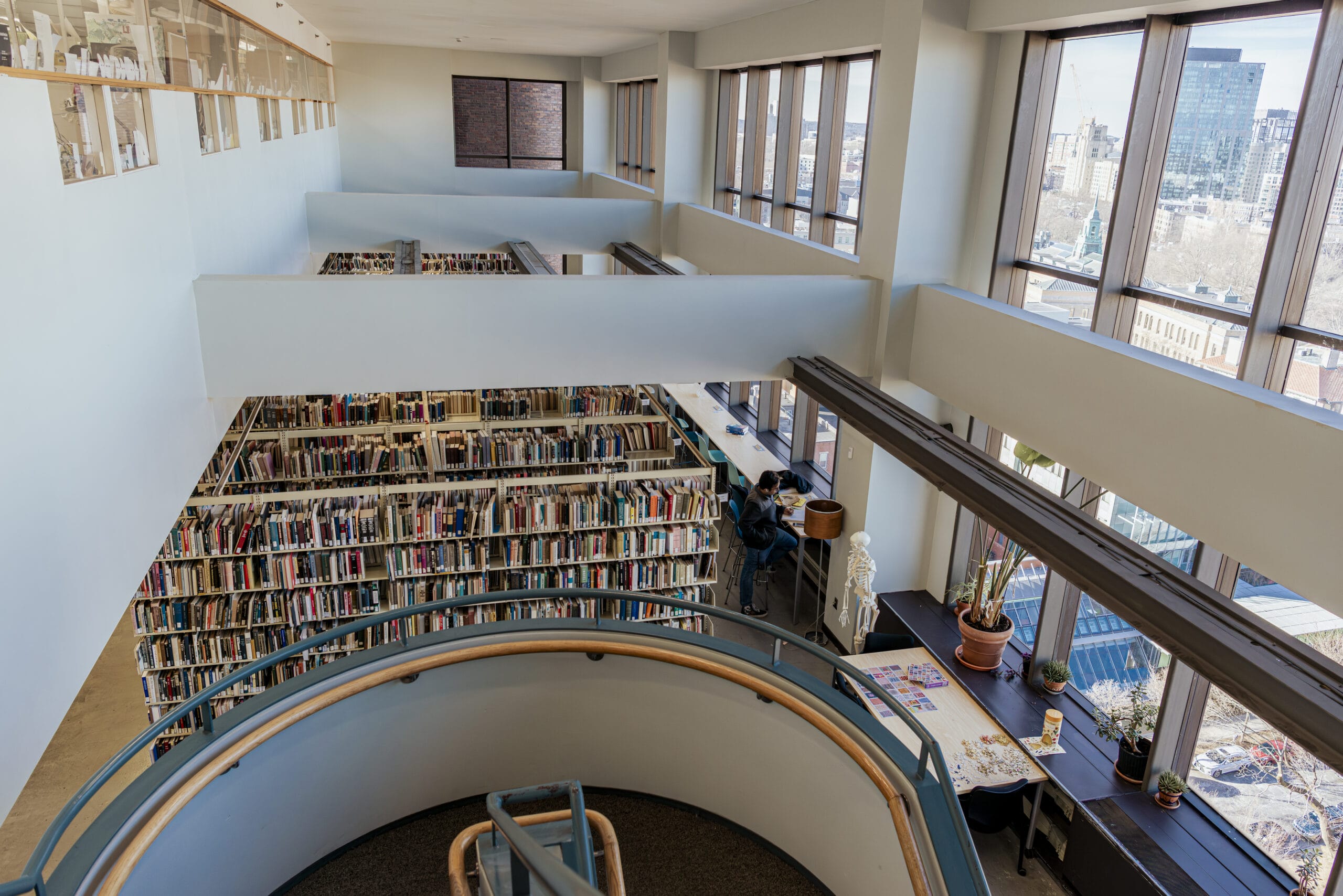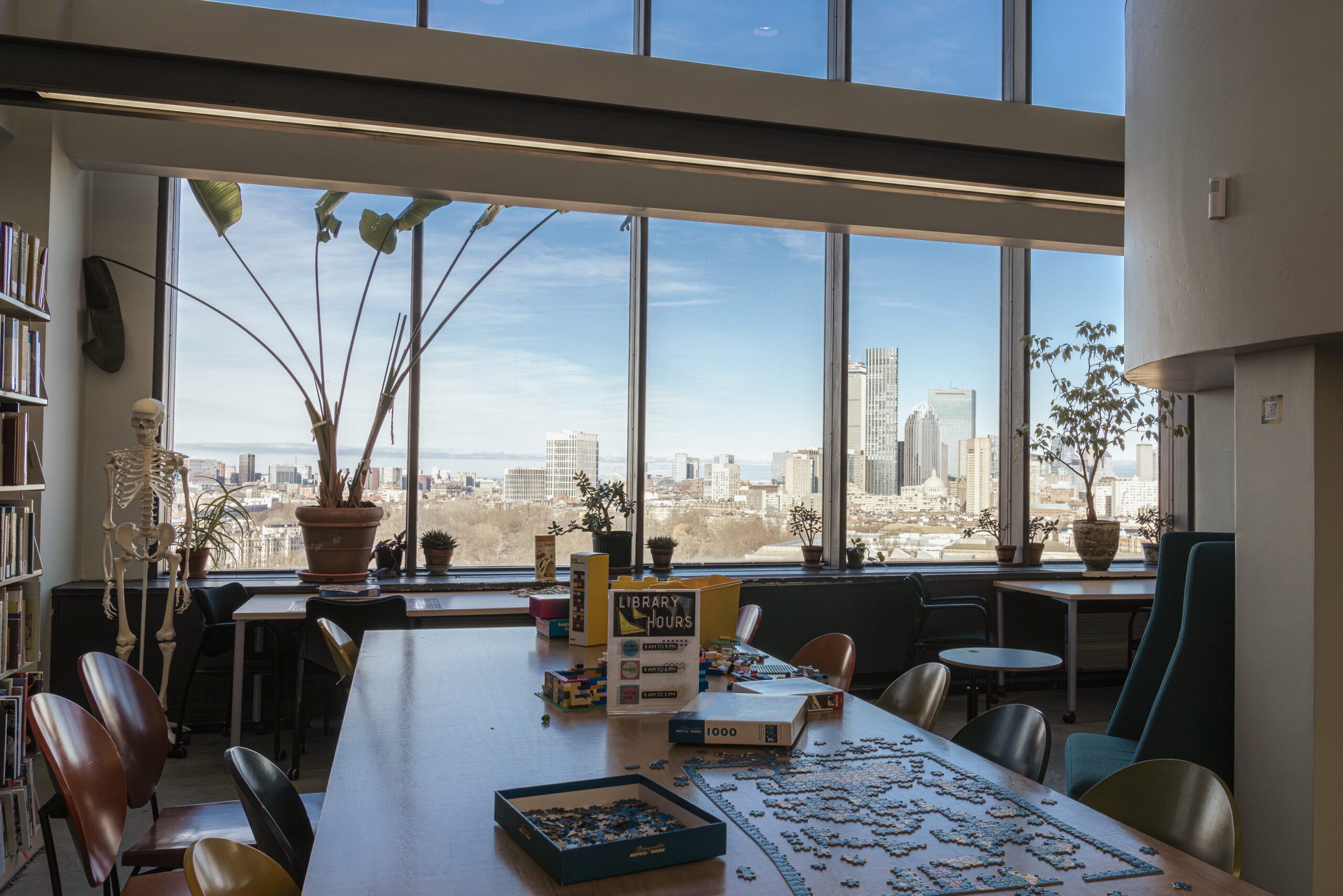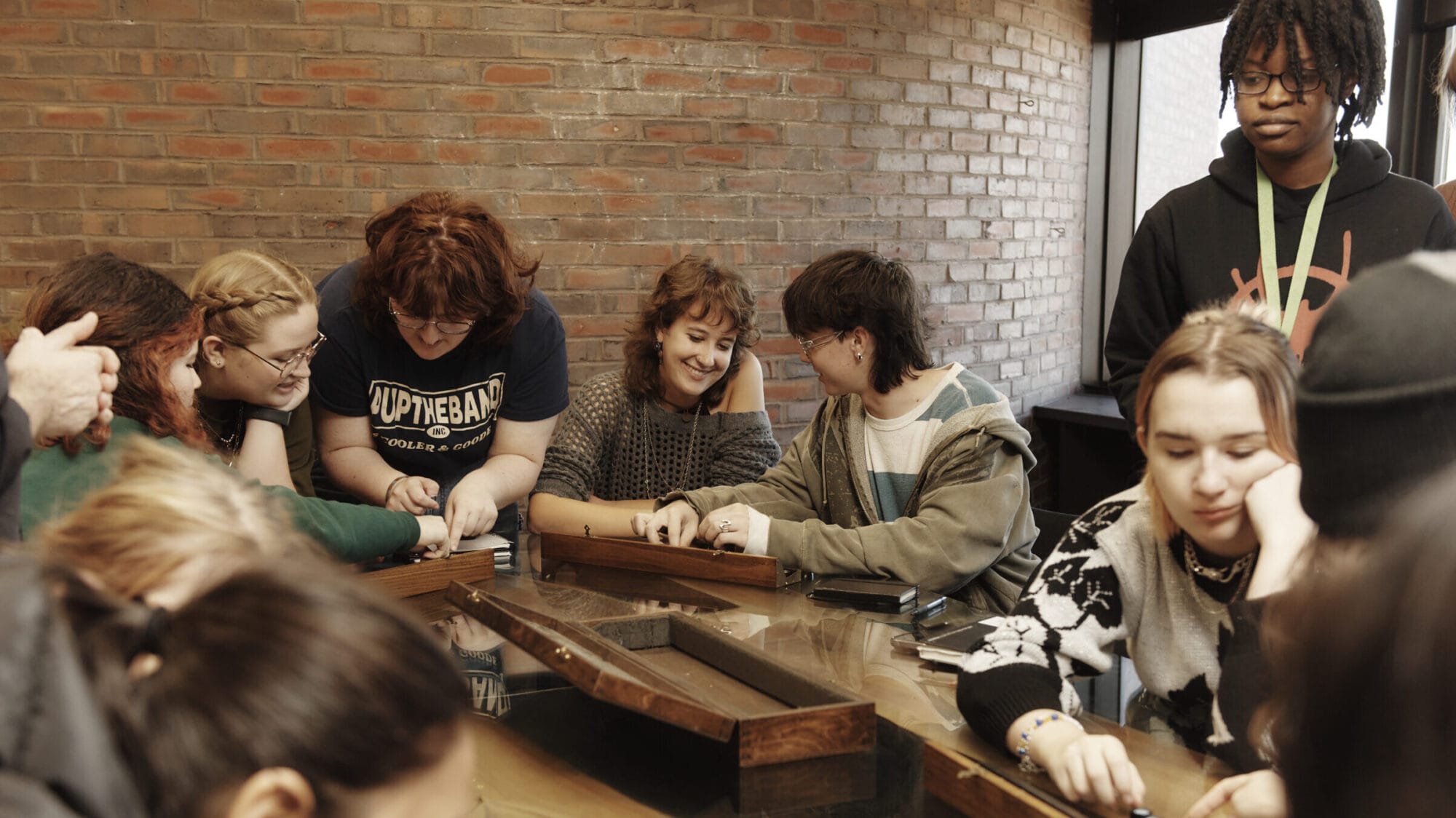


For more than a century, MassArt’s Morton R. Godine Library has cultivated extensive resources that invite discovery and deep exploration. Our world-class collections encompass a broad range of research materials, visual resources, digital media, and more.
We are free and open to the public and committed to providing equitable and accessible library materials that support MassArt’s curriculum.


Whether you’re a MassArt affiliate or a lifelong learner from the broader community, we invite you to peruse our collections, featuring thousands of books and e-books, artist books, magazines, folios, zines, photos, films, and other materials.
Here, you’ll find a rich and accessible learning environment where visitors of all identities and interests are empowered to take advantage of everything we offer.

Visual Language Color Class in the Library with faculty Greg Wallace and Louis Perez.
Our vast collections and lending resources are only part of our story: the library is also home to computer labs, study rooms, and assistive technology stations that provide focused spaces for learning and completing assignments. Students and faculty also have the opportunity to organize and attend pop-up instruction sessions, workshops, and presentations. And, faculty who wish to integrate instructional technologies into their coursework can connect with our Teaching with Technology Collaborative for face-to-face instruction and individualized support.
For members of the MassArt community looking to broaden their perspective, we also supply free and reduced-cost passes to Boston-area art museums, including the Museum of Fine Arts, the Isabella Stuart Gardner, and the Institute of Contemporary Art.
See All Our ServicesThroughout its history, the Morton R. Godine Library has been an important contributor to MassArt’s legacy of sharing art knowledge and fostering creative inquiry. The library was conceived in 1871 by the Massachusetts Board of Education to spread art knowledge across the state. It started out as a mobile collection of plaster cards, drawings, paintings, and art books. This “traveling museum” was the first collection of visual reference materials in the U.S. created to support public art education. Eventually, the collection found its permanent home in the Massachusetts Normal Art School — now known as the Massachusetts College of Art and Design — where it continues to develop and grow as a valuable resource for our creative community.
